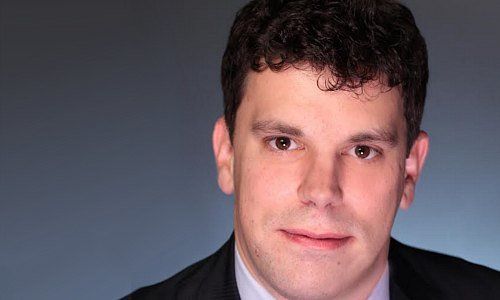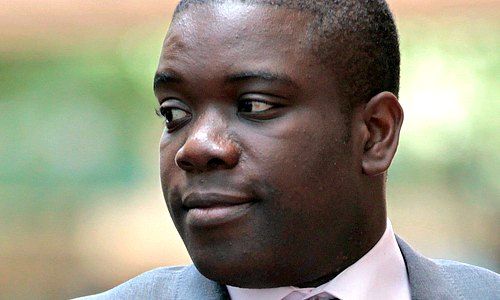What do rogue traders have in common? Will the advent of big data in finance be their undoing? A UBS banker who helped investigate Kweku Adoboli's $2 billion trading scam reveals his insight.
Jerome Kerviel, Nick Leeson, Kareem Seragelin, Kweku Adoboli – they all wrought billions in damages to their investment bank employers as traders who broke their risk limits, lied about their trades and amassed huge trading positions the banks said they were unaware of.
Much has been written about rogue trader personalities: they are unafraid to take risks, highly competitive, calm under pressure, motivated by money and trading-floor respect.
Just as important is the heart and lungs of banks which allows rogues to peddle their illicit craft for months, sometimes for years, according to Georges Gamma, a UBS banker who was part of a ten-person team to investigate how Adoboli could pull off the biggest fraud in British history.
Adrenalin and Testosterone
At an event organized by the CFA Society of Switzerland, Gamma (pictured below) didn't speak directly to the Adoboli case, but depicted a stylized version of a rogue trader's illicit 10 billion Swiss franc bet on shorting the Swiss blue-chip index, earning millions in profits while trying to keep the scam secret.

While greed plays a role, rogue traders typically aren't in it to enrich themselves. Rogue traders are often motivated by the adrenalin rush, the prospect of a better bonus from healthy trading profits, or to bolster their own standing in a high-testosterone environment, Gamma said.
The errant traders know how to work around the web of risk management, supervision, back-office, finance and other control functions, Gamma said – these are meant to catch not just mistakes like so-called fat-finger errors, but also malicious intent.
«Supervision is really key: I can’t stress that point enough,» Gamma said. «A good supervisor who is on top of things and sits next to traders supervising – that makes it immensely difficult for rogue traders to keep up their lies.»
Tarnished Reputations
Clearly, that didn't happen with Adoboli, who cost UBS $2 billion in losses, eventually cost then-CEO Oswald Gruebel his job and tainted the career of investment banker Carsten Kengeter, now head of Deutsche Boerse.
It was Adoboli himself, now a public speaker and after serving roughly half of a seven-year prison sentence and banned from working in the City's finance sector, who came clean on the massive losses, much to the shock of his immediate bosses.
UBS quickly fired John DiBacco, Adoboli's supervisor at the time, shortly after the losses surfaced in September 2011. DiBacco, who disputes UBS' assessment of his performance at the bank, is now a a trader for market-maker KCG in New York.
Connecting Red Flags
The problem isn't necessarily bad supervision, but a failure of the chain between back-office, finance, operations and other control instances to properly communicate, Gamma said.
A rogue trader will typically raise several red flags by entering trades with settlement dates far in the future, cancelling transactions or amending them by hand, or refusing to take the two-week block leave that is mandatory on most trading floors, Gamma said.
The labyrinth of complexity in investment banks provides the background noise that is essential for rogue traders to flourish, and once he or she has found all the workarounds, is very difficult to catch, according to Gamma.
New Lies to Cover Old Untruths
«If operations, risk control and finance and other control functions act in isolation and do not talk to each other, then an rogue trader will get away with lying for much longer,» he said.
The arcane maze of data within most large banks as well as an antiquated IT structure at many of them provides the perfect cover for subterfuge.
Meanwhile, the trader is forced to perpetuate his initial lie with another one in order to not have his cover blow – there is no exit strategy after an initial fateful decision to ignore a risk limit or hide an illicit trade.
Criticism of Profit Culture
«As long as there are significant losses or profits on the books, most likely because of big bets, he has to continue cooking the books. Otherwise he is exposed. And that usually continues to the bitter end,» Gamma said.
Since his release from prison, Adoboli has frequently criticized the culture of investment banks for putting profits foremost, regardless of the risks.
Few in the financial industry subscribe to this view. Instead, banks have sought to bolster technology in order to spot potential rogue traders even before their hire, or to better track their movements as employees.
Is Big Data the Savior?
Are rogue traders a fact of life? Yes and no, Gamma says.
The quick pace of the banking industry as well as deep spending cuts provide good cover, he says. But firms like Credit Suisse, which entered a joint venture with U.S.-based security firm Palantir to identify potentially criminal or rogue employees before they can wreak financial havoc on the bank, are increasingly savvy about using big data to spot wrong-doers.
The caveat is data quality, he says: «If you're looking for a vendor or company to help you (implement a control framework), don’t let yourself be lured by big data buzzwords like machine learning or learning algorithms. If the quality of your data input is garbage, your output is going to be garbage.»



































